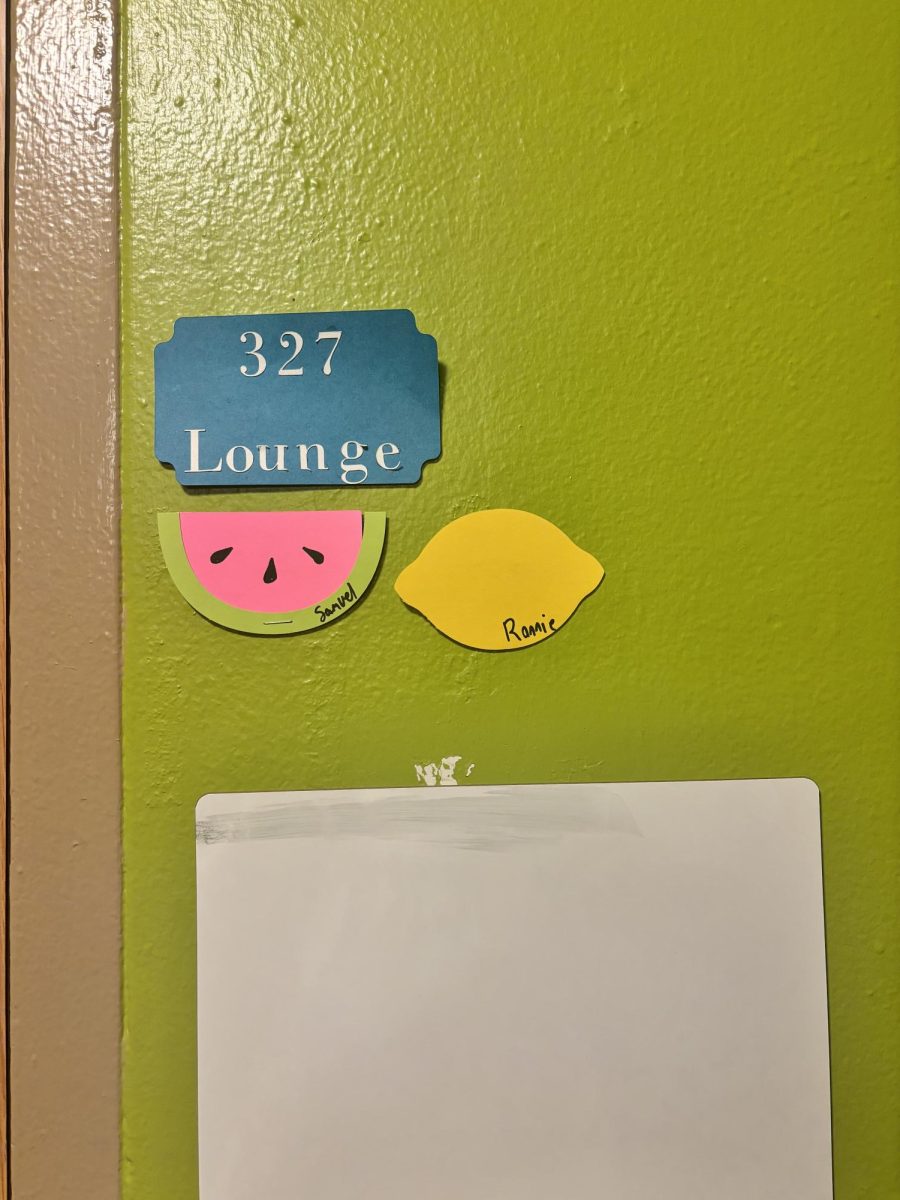Students all around campus walk to their dormitory halls, swipe their IDs to enter and find their hall’s lounge filled with furniture and window coverings, as this lounge is where some will temporarily stay.
Dan Shonk, University Housing Director of Assignments and Occupancy Management, said dormitory lounges found in: Allyn, Clark, Fletcher, Manchester, Dunbar, Prentice, Wright and Koonce Halls have been converted to temporary housing.
“We remove the current lounge furniture and replace it with some extra student room furniture that we have from storage,” he said. “If there is a window that faces the hallway, we work with the university maintenance staff to put some kind of window covering up.”
Jill Jenkins, Senior Executive Director of University Housing, said transitional housing is a temporary housing assignment which allows students to live on campus before receiving a permanent dorm.
Students like Megan Norton, a sophomore American Sign Language interpreter major, are concerned about the privacy of those in the temporary dorms.
“Aren’t the doors glass, like, can’t you just see in them? Which, I mean obviously they would have covered them up,” Norton said. “Still it’s like there’s zero privacy.”
These assignments are called transitional because university housing does not anticipate students to live in these lounges for longer than a year, she said.
This fall, university housing expects students to spend one to two weeks in transitional housing before receiving a permanent room assignment, Jenkins said.
The time students spend in transitional housing can vary, as some assigned to it have received permanent rooms before move-in or spent the fall semester in a temporary room, she said.
“We have students who will get assigned to transitional housing, and then by the time they get here they will never live in it,” Jenkins said. “Because a space opens up in a permanent room and we relocate them before they arrive.”
Shonk said students are also assigned to transitional housing to receive a housing charge on heir bill and to help them plan for their room assignment.
“The reason why we put students in transitional space in early August was because we want to make sure they have a housing assignment,” he said.
Jenkins said those assigned to a temporary room will receive a 25% reduction for the cost of double room rate, which is based on the student’s year.
“Then when they’re moved into a permanent space, their rate will change according to their assigned [room],” she said.
This is the first year university housing is utilizing transitional housing since the pandemic, Jenkins said.
“We haven’t used it in a number of years because of Covid, and the on-campus demand was different in those years,” she said. “We think the last time we used it was fall 2018.”
Before the pandemic, Jenkins said university housing used transitional housing every fall semester to help students have a place on campus.
At the time of publication, at least 50 students, who were initially assigned transitional housing, received permanent rooms, Shonk said.
Kyndra Irwin, a sophomore visual communication design major, said the university should explore other options to accommodate students.
“I think if [the university] doesn’t have enough rooms for freshmen, they need to stop accepting freshmen or maybe make more dorms,” Irwin said.
For moving students into permanent rooms, Shonk said their preferred hall choice and the distance they will be moving, if they have already moved in, are taken into consideration.
“I don’t necessarily want to move someone from Allyn Hall over to Centennial Court A unless they preferenced that,” he said. “Because I know that person will probably have to take a lot of trips back and forth.”
The circumstances for students assigned temporary rooms can vary, but Jenkins said the most common reason students are assigned transitional housing is because of registering for housing late.
“We’re talking about a pocket of students who maybe decided that they changed their mind about living on campus and need to be on campus,” she said, “other plans fell through or they decided at the last minute to come to Kent.”
Regardless of the situation, university housing wants to give those students the opportunity to live on campus, Jenkins said.
“We’re unbiased, say that living on campus is awesome and I’m glad that we can provide that experience to students,” she said.
Mallory Good, a senior political science major, said since the campus is undergoing budget cuts this year, the decision to utilize transitional housing is cost effective.
“I do think [transitional housing] is probably one of the more inexpensive ways of opening housing to students, especially freshmen, so they get that classic first year experience,” Good said.
Adriana Gasiewski is a reporter. Contact her at [email protected].




